Rejuvenation Roundup August 2024
- Skin, hair, bones, and blood vessels are all getting their own approaches.

Summer’s at its end, but rejuvenation biotechnology is still heating up, with researchers discovering ways of vastly improving mouse lifespan and conducting a recruitment drive for young scientists. Here’s how the field was advanced in August.
Interviews
 Michael Antonov: from Oculus to Longevity Biotech: After Oculus was sold to Facebook for two billion dollars a decade ago, Michael Antonov, one of the founders, could have become a major tech investor, a popular podcaster with his own mega-theory of everything, a hedonist, or all of the above. Instead, he gravitated towards the emerging field of longevity biotech.
Michael Antonov: from Oculus to Longevity Biotech: After Oculus was sold to Facebook for two billion dollars a decade ago, Michael Antonov, one of the founders, could have become a major tech investor, a popular podcaster with his own mega-theory of everything, a hedonist, or all of the above. Instead, he gravitated towards the emerging field of longevity biotech.
Peter Diamandis: “Stay Healthy, Anti-Aging Tech is Coming”: Peter is a serial entrepreneur and investor in several fields, from commercial space flight to longevity biotech; a visionary speaker and author of several best-selling books, including Abundance, The Future is Faster Than You Think, and Life Force.
Research Roundup
 Rapamycin + Trametinib Increase Mouse Lifespan by up to 35%: Combining rapamycin and trametinib seemed to have a cumulative effect in both sexes but mostly in females. These results are probably due to a reduction in both cancer and inflammation.
Rapamycin + Trametinib Increase Mouse Lifespan by up to 35%: Combining rapamycin and trametinib seemed to have a cumulative effect in both sexes but mostly in females. These results are probably due to a reduction in both cancer and inflammation.
Vegan Diet Lowers Biological Age in a New Study: In a study that involved pairs of identical twins, Stanford scientists have shown that a healthy vegan diet leads to a decrease in biological age and possibly to other health benefits.
 New Epigenetic Clock Built on Lurking DNA Fragments: In Aging Cell, a team of researchers has announced Retroelement-Age, a novel clock that focuses on the expression of buried pieces of DNA that are normally suppressed. The natural human genome has a large number of artifacts left over from ancient viral infections along with pieces of DNA that transpose themselves into the genome.
New Epigenetic Clock Built on Lurking DNA Fragments: In Aging Cell, a team of researchers has announced Retroelement-Age, a novel clock that focuses on the expression of buried pieces of DNA that are normally suppressed. The natural human genome has a large number of artifacts left over from ancient viral infections along with pieces of DNA that transpose themselves into the genome.
Hyperbaric Oxygen Therapy Increases Fitness in Elderly: In a new study, a 12-week protocol of hyperbaric oxygen therapy (HBOT) resulted in marked increases in aerobic capacity and cardiac blood flow. HBOT involves placing patients in a tightly sealed chamber where they breathe pure oxygen under higher-than-normal atmospheric pressure.
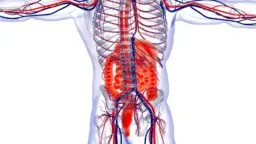 Fecal Microbiota Transplants Reduce Vascular Aging in Mice: Fecal microbiota transplantation from young mice to older mice improved multiple metabolic parameters and some hallmarks of aging, such as inflammation and telomere shortening. Dysbiosis, an imbalance in the gut microbiome, is a newly recognized hallmark of aging.
Fecal Microbiota Transplants Reduce Vascular Aging in Mice: Fecal microbiota transplantation from young mice to older mice improved multiple metabolic parameters and some hallmarks of aging, such as inflammation and telomere shortening. Dysbiosis, an imbalance in the gut microbiome, is a newly recognized hallmark of aging.
Clinical Trial Reveals a Foe of Fatty Liver Disease: A highly anticipated clinical trial was just published by the prestigious Journal of Nutrition with a surprising finding: that C15:0, a trace dietary saturated fat present in butter, can lower liver enzymes in young adults susceptible to fatty liver disease.
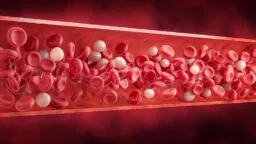 Immune Peptide Might Keep White Blood Cells Contained: In npj Aging, researchers have described how immune cell infiltration in inflammaging can be reduced with an immune-related peptide in a mouse model. These researchers employed a mouse model of peritonitis, the inflammation of the abdominal lining, in order to determine how PEPITEM influences white blood cells in differently aged animals.
Immune Peptide Might Keep White Blood Cells Contained: In npj Aging, researchers have described how immune cell infiltration in inflammaging can be reduced with an immune-related peptide in a mouse model. These researchers employed a mouse model of peritonitis, the inflammation of the abdominal lining, in order to determine how PEPITEM influences white blood cells in differently aged animals.
A Ketosis-Related Compound Alleviates Arthritis in Rats: In Aging Cell, researchers have published details on the pathway by which a compound commonly found in ketone bodies ameliorates osteoarthritis in a rat model. The cartilage holding joints together is built and maintained by chondrocytes, which synthesize such necessary proteins as collagen and aggrecan but deteriorate with aging.
 NMN Increases Lifespan in Female Mice: A new preprint from David Sinclair’s lab has discovered that NMN supplementation started in midlife increases median and maximal lifespan in female mice and boosts healthspan in males. NMN’s effect on mammalian lifespan has not been tested until now.
NMN Increases Lifespan in Female Mice: A new preprint from David Sinclair’s lab has discovered that NMN supplementation started in midlife increases median and maximal lifespan in female mice and boosts healthspan in males. NMN’s effect on mammalian lifespan has not been tested until now.
A Botanical Extract Extends Lifespan and Healthspan in Mice: According to a new study, a polyphenol-rich natural extract positively impacts lifespan, healthspan, and cellular senescence. These results were observed in both cell culture and a mouse model. Traditional and folk medicines offer many botanical extracts that can be tested by modern science for their medicinal properties.
 Inflammation May Drive Fat Distribution in Older People: A new study published in Aging Cell has detailed what happens to individual fat cells in white adipose tissue (WAT) as they age. Previous research has described WAT as an organ in its own right, functioning not only as an energy storage source but as a regulator of metabolism.
Inflammation May Drive Fat Distribution in Older People: A new study published in Aging Cell has detailed what happens to individual fat cells in white adipose tissue (WAT) as they age. Previous research has described WAT as an organ in its own right, functioning not only as an energy storage source but as a regulator of metabolism.
Anti-Inflammatory Diets Mitigate Risk of Dementia: A new study suggests that an anti-inflammatory diet can significantly reduce the risk of dementia and delay its onset even in people with existing cardiometabolic diseases.
 Fighting Inflammation May Cause More Senescence: A researcher publishing in Biogerontology has reviewed the literature on the relationship between cellular senescence and the immune system, finding that dwindling immune surveillance allows senescent cells to accumulate.
Fighting Inflammation May Cause More Senescence: A researcher publishing in Biogerontology has reviewed the literature on the relationship between cellular senescence and the immune system, finding that dwindling immune surveillance allows senescent cells to accumulate.
High-Intensity Interval Training Improves Cognition: Cognitive decline is one of the risks associated with getting older, but new research suggests there may be a way to fight back. A new study suggests that high-intensity interval training improves spatial learning and maintains brain volume and connectivity.
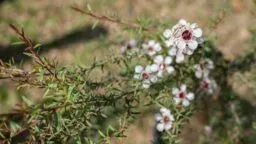 Manuka Honey Effective Against Breast Cancer in Mice: UCLA scientists have shown that Manuka, an exclusive honey variety, can quench estrogen receptor-positive breast cancer in vitro and in vivo. Breast cancer remains the deadliest type of cancer in women, claiming more than 40 thousand victims a year in the US alone.
Manuka Honey Effective Against Breast Cancer in Mice: UCLA scientists have shown that Manuka, an exclusive honey variety, can quench estrogen receptor-positive breast cancer in vitro and in vivo. Breast cancer remains the deadliest type of cancer in women, claiming more than 40 thousand victims a year in the US alone.
Why Bone Destruction Is Accelerated with Aging: Researchers have described a relationship between the NAD+ regulator CD38, mitochondrial function, and the gradual destruction of bone in Aging Cell. Not only do older mice have more osteoclasts, their osteoclasts are bigger and more aggressive in wearing down bone.
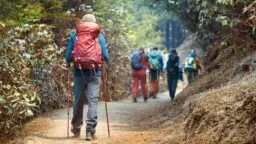 Weekend-Oriented Physical Activity Superior for Brain Health: According to a new study, “weekend warriors”, people who have most of their physical activity over one or two days a week, enjoy the most robust risk reduction for several brain health-related conditions.
Weekend-Oriented Physical Activity Superior for Brain Health: According to a new study, “weekend warriors”, people who have most of their physical activity over one or two days a week, enjoy the most robust risk reduction for several brain health-related conditions.
NNMT Inhibitor Improves Muscle Function in Aged Mice: A recent paper has reported on improving muscle function in aged mice through combined treatment of exercise and the inhibition of NNMT, an enzyme involved in NAD+ metabolism.
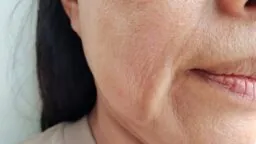 Skin Aging and Cellular Mobility at the Protein Level: In Aging, researchers have described how the changing production of skin cells’ proteins is a core part of their age-related decline. In healthy skin, dermal fibroblasts produce the proteins needed to maintain the extracellular matrix (ECM), the network of collagen and elastin that holds soft tissues together, but this ability declines with age.
Skin Aging and Cellular Mobility at the Protein Level: In Aging, researchers have described how the changing production of skin cells’ proteins is a core part of their age-related decline. In healthy skin, dermal fibroblasts produce the proteins needed to maintain the extracellular matrix (ECM), the network of collagen and elastin that holds soft tissues together, but this ability declines with age.
Some Cells Age Much Faster Than Others: In Stem Cell Reports, researchers have described how cell subpopulations and division affect the results of epigenetic clocks. Some cells and tissues accumulate epigenetic aging much more rapidly than others.
News Nuggets
 A4LI Responds to NIH Reform Proposal: The Alliance for Longevity Initiatives (A4LI) is proposing a new National Institute for Longevity and Aging Research (NILAR) in response to the recent NIH reform proposed by House Energy and Commerce (E&C) Chair Cathy McMorris-Rodgers (R-WA).
A4LI Responds to NIH Reform Proposal: The Alliance for Longevity Initiatives (A4LI) is proposing a new National Institute for Longevity and Aging Research (NILAR) in response to the recent NIH reform proposed by House Energy and Commerce (E&C) Chair Cathy McMorris-Rodgers (R-WA).
 A Phase 2 Clinical Trial for Hair Loss: Los Angeles-based Pelage Pharmaceuticals has just announced a Phase 2a clinical trial for the treatment of androgenetic alopecia, also known as pattern baldness. It is thought that up to 50% of men experience hair loss as a result of pattern baldness by age 50.
A Phase 2 Clinical Trial for Hair Loss: Los Angeles-based Pelage Pharmaceuticals has just announced a Phase 2a clinical trial for the treatment of androgenetic alopecia, also known as pattern baldness. It is thought that up to 50% of men experience hair loss as a result of pattern baldness by age 50.
Coming Up
40+ Experts Gather in Shanghai for TimePie Longevity Forum: From November 1st to 3rd, 2024, the 5th TimePie Longevity Forum will take place in Shanghai, China. Bringing together 40+ leading speakers from around the globe and attracting over 1,000 attendees, this event is set to be one of the most significant platforms for international anti-aging research, academic exchange, and industry collaboration in China.
 Young Longevity Talent from the 2024 Xplore Program: LongX, an initiative dedicated to providing global early-career avenues into longevity, has concluded Cohort 1 of its first fully remote educational venture, the Xplore Program. The longevity community is welcome to attend the Xplore Program showcase event on Sep 7, 2024 to support the next generation of longevity talent.
Young Longevity Talent from the 2024 Xplore Program: LongX, an initiative dedicated to providing global early-career avenues into longevity, has concluded Cohort 1 of its first fully remote educational venture, the Xplore Program. The longevity community is welcome to attend the Xplore Program showcase event on Sep 7, 2024 to support the next generation of longevity talent.








